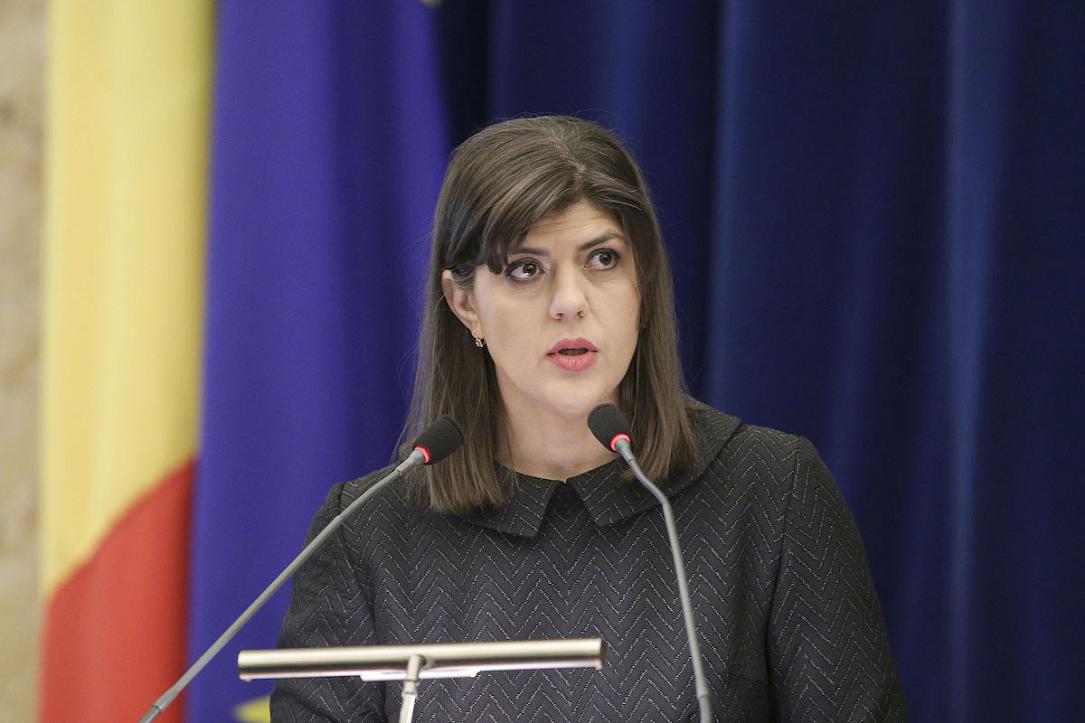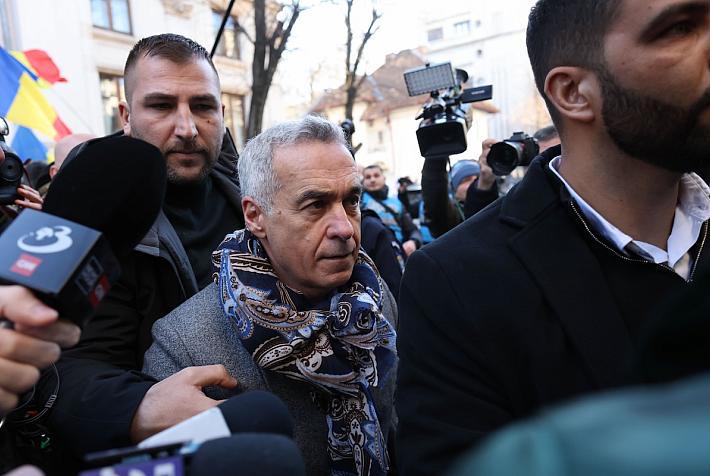US ambassador praises ECHR's ruling in favor of RO's former anticorruption chief, president says there must be consequences

The European Court of Human Rights (ECHR) ruled on May 5 that Romania violated the rights of the former anticorruption directorate (DNA) chief prosecutor Laura Codruta Kovesi when dismissing her before the end of her mandate, and this has triggered reactions from top Romanian officials, including the president and the prime minister, as well as the US ambassador to Bucharest and former justice minister Tudorel Toader.
President Klaus Iohannis, who in 2018 signed Kovesi's dismissal after the Constitutional Court (CCR) compelled him to do so, said on Tuesday, May 5, that the ECHR ruling "could not remain without consequences." Moreover, the CCR judges "must review immediately not only the decision to revoke Ms. Kovesi, but also any other decisions taken in the light of simple statements, whether political or not," the president added.
"Defying all the arguments I invoked at the time, including those alleging the violation of Ms. Kovesi's free access to justice, the Constitutional Court decided to remove her from office, at the suggestion of the minister of justice. Such a decision of the ECHR, unprecedented as it concerns the authority guaranteeing the supremacy of the Constitution, cannot remain without consequences. The credibility of CCR, already affected by some controversial decisions over the past few years, is now even more seriously shaken," president Iohannis said.
He also stated that the Human Rights Court's decision "shows us that this institution needs to be reformed at the constitutional level."
Meanwhile, Adrian Zuckerman, the US ambassador to Bucharest, said that the ECHR decision "is an admonition against political interference in judicial matters to avoid criminal prosecution."
"The Court ruled today that Laura Codruţa Kovesi was wrongly terminated as head of the DNA. President Klaus Iohannis praised the decision. We agree with President Iohannis that Ms. Kovesi's fundamental rights were infringed upon and that free access to justice and freedom of expression are essential values of a democratic society. This decision is an admonition against political interference in judicial matters to avoid criminal prosecution," Zuckerman said in a press release.
"As a recipient of the 2014 US Embassy's Woman of Courage award, Ms. Kovesi, now head of the European Public Prosecutor's Office, exemplifies the values of courage, justice, and honor. We commend her again today," he added.
Prime minister Ludovic Orban said that the ECHR decision "is proof that the current Constitutional Court has been compromised by PSD (e.n. the Social Democratic Party)," News.ro reported.
The PM believes that CCR's mode of action should be reconsidered, as the Court compromised itself through decisions that violate the European Convention on Human Rights. "This seriously affects the credibility of one of the most important institutions of the Romanian state, and the CCR judges who believed they can decide for the President of Romania are responsible for this," he added.
PSD, who was the ruling party at the time of Kovesi's dismissal in 2018, also reacted to ECHR's ruling. PSD's spokesman Lucian Romascanu said on Tuesday that decisions of the European Court of Human Rights could not be commented on. However, he added that "the ECHR ruling found only that Ms. Kovesi did not benefit from an appeal against the president's decree, which is not attributable to a Romanian court. If there is a legislative problem, we will correct it after we see the motivation of the Court," according to News.ro.
Meanwhile, Tudorel Toader, the former justice minister who requested the dismissal of Kovesi, said that the CCR decision prompted president Iohannis to sign the act of dismissal, and not his proposal.
Toader explained for Bzi.ro that the dismissal process included three factors: "As a minister, I made the evaluation report and proposed the revocation. Then, the CCR was notified; the minister is not the author of the right to notify the Court. CCR made a decision and the president revoked her (e.n. Laura Codruta Kovesi) based on that decision. The CCR decision made the president sign the dismissal decree, not my proposal."
Laura Codruta Kovesi headed the National Anticorruption Directorate for five years, from 2013 until July 2018, when she was dismissed. She appealed her dismissal at the European Court of Human Rights at the end of 2018, and the ECHR ruled in her favor on May 5 this year.
newsroom@romania-insider.com
(Photo source: Inquam Photos/Octav Ganea)













